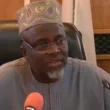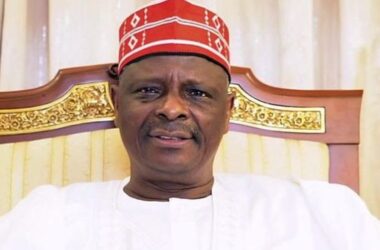Former Vice President Atiku Abubakar has shared fresh details on how the Nigerian government under ex-President Olusegun Obasanjo was able to end Boko Haram’s activities shortly after the group emerged in the early 2000s.
Speaking in Abuja on Wednesday, Atiku noted that when Boko Haram first surfaced in Yobe State in 2002, the administration did not waste time. He said President Obasanjo immediately sought advice on how to handle the situation. According to Atiku, this quick reaction and firm approach led to the group being crushed in just a few weeks.
Atiku shared the account during a meeting with stakeholders from Kogi East Senatorial District, led by former Kogi State Deputy Governor, Simon Achuba. A video of the meeting was later posted on his Facebook page.
“You remember when the Boko Haram started in Yobe? It was actually in 2002. We were in office. The president sent for me. ‘VP, what do we do about this?’ Then I said, ‘Mr President, let’s call the Service Chiefs and give them a deadline. If they can’t put it down, then they should put down their uniform and go away. We will get some other people’,” Atiku recalled.
He said Obasanjo acted on this advice and summoned the military chiefs. They were given firm orders to end the insurgency immediately. Atiku said the military complied, and within weeks, the Boko Haram uprising was stopped. The group, according to him, did not resurface until years later when the Obasanjo administration had left office.
Atiku also noted that the failure of later administrations to deal with Boko Haram in a similar manner allowed the group to grow stronger and more dangerous. He said the lack of swift and strong political decisions is to blame for the spread of insecurity in many parts of Nigeria today.
“So, I will say there’s a lack of political will on the leaders. When they’re killing your citizens, how can you even eat? They’re killing your citizens and you don’t give a damn; that is the greatest irresponsibility by any political leader, anywhere,” he said.
Atiku served as Vice President between 1999 and 2007, working closely with Obasanjo during Nigeria’s return to democratic rule. He said the country’s present security crisis is deeply rooted in poor leadership decisions, especially when it comes to protecting the lives of citizens.
He also noted that back then, leaders were more determined to take quick action, unlike now when responses to serious threats are often delayedor ignored.









